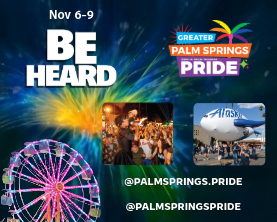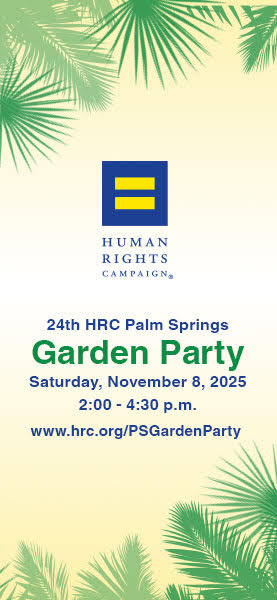By Christopher Astrala
This year’s election is the most important in our lifetime. The decisions voters make in November will reverberate for a generation to come, through all three branches of American government and across the world.
Given the president’s performance during his first term and his opportunities to cement and then expand those changes in another four years, it’s not an exaggeration to say that the 2020 election is the most important one in our nation’s history.
A CNN poll showed 71 percent of registered voters are extremely or very enthusiastic about voting in this year’s elections; the final CNN poll conducted before the 2016 vote showed just 46 percent were that hyped up to vote. Surveys show voters are as tuned in to the presidential race now as they were immediately before the 2008 and 2012 presidential elections, and much more so than just prior to the 2016 race.
Importance of Voting
The only way to preserve the government “of the people, by the people, for the people” that President Abraham Lincoln described in the Gettysburg Address is for “the people” to participate in election of that government. “The people” that Lincoln was talking about includes each one of us. Voting is not an every four-year event when the hoopla of a presidential election stirs voters’ interest. The down ballot and off year elections are very important as well. These are the elections that govern everything from potholes to education to parks to environmental protection to public safety– issues that have an everyday impact on our lives and deserve our attention.
Not too many years ago, people were willing to risk their lives to secure the right to vote. It is a privilege we cannot take for granted. It was not until 1918 that women were allowed to vote. Eighteen year olds have only been able to vote since 1971. The very close Bush v. Gore presidential election in 2000 showed us clearly that each vote can make a difference. Voting is the cornerstone of democracy.
The LGBTQ Voice
The 2020 presidential election will determine whether the Trump administration’s attacks on LGBTQ rights are allowed to continue — or whether we begin the work of restoring our democracy. And while the stakes couldn’t be higher, for LGBTQ people in particular, there also could not be a greater opportunity to make change.
Over the past several election cycles, LGBTQ people and our allies have been exerting more and more political power — dramatically altering the political landscape.
Today, there are 11 million LGBTQ voters estimated nationwide who will play a decisive role in the upcoming elections. We have also identified 57 million “Equality Voters” — friends, family members and other allies who prioritize LGBTQ-inclusive policies when deciding which candidates to support.
During the 2018-midterm elections, the Human Rights Campaign successfully worked to mobilize Equality Voters in key races across the country. In fact, Equality Voters accounted for 29% of the electorate in 2018, making it one of the most substantial voting blocs in the election. Turnout among Equality Voters increased from 36% in the 2014-midterm elections to 56 percent in 2018. This trend is only expected to continue in 2020.
LGBTQ people and our allies played a key role in pushing candidates over the finish line in dozens of races with groundbreaking consequences.
Specifically, Equality Voters helped protect the Senate’s first out LGBTQ member, Tammy Baldwin in Wisconsin, and elect another out member, Senator Kyrsten Sinema in Arizona. Equality Voters helped elect and re-elect governors who are working to enact critical non-discrimination protections, outlawing the dangerous and abusive practice of so-called “conversion therapy,” and acting as a powerful backstop against anti-LGBTQ state legislation. And Equality Voters helped restore a pro-equality majority in the House of Representatives that passed the Equality Act.
This is part of a growing trend. In 2016, LGBTQ voters and our allies helped oust former North Carolina Governor Pat McCrory after he signed into law a draconian anti-LGBTQ bill known as HB2. According to a CNN exit poll, 65% of 2016 North Carolina voters opposed the law. During Alabama’s special election in 2017, the coalition built by groups like the Human Rights Campaign and the NAACP played a role in defeating anti-LGBTQ zealot Roy Moore and electing Doug Jones to the US Senate. Let’s keep that momentum going.
How can I vote safely in 2020?
During the COVID-19 pandemic, voting is more complicated. You may not want to vote in person, especially if there will be long lines. The safest way to vote is by mail. Most states will let anyone vote by mail this year, even if you don’t have a reason. Click here to see your state’s COVID-19 response to voting. Seven states, including Louisiana, still require an excuse if you wish to vote by mail.
Voting by mail is also called absentee voting. You have to request a ballot by mail, phone or online. Then your town will send you a ballot. You fill it out and either send it back or bring it to the election office and drop it in the box in person. Either way, no lines and very safe. You may hear that voting by mail leads to fraud, or problems with a fair count. This is not true. Voting by mail has been shown to be as fair as in-person voting.
If you vote by mail, do it as soon as possible! The post offices are going to be busy! You can also vote early in some states. This is safer than waiting until Election Day and risking a big line.
Because of COVID-19, some states may have changes in their voting rules and the timing of their local elections.
Visit www.usvotefoundation.org to look up your state’s election dates, deadlines, and different ways you can vote.
Visit www.vote.org/covid-19/ to see your state’s COVID-19 resources for voting.
With so much at stake in 2020, a fight for full federal equality, defend the fundamental rights of LGBTQ people and protect the most vulnerable — both here and around the globe — from stigma, institutional inequality, discrimination and violence. We cannot waste this hard-won privilege if we want to preserve government “of the people, by the people, for the people.”
We must demonstrate the importance of LGBTQ issues and the power of our votes.



